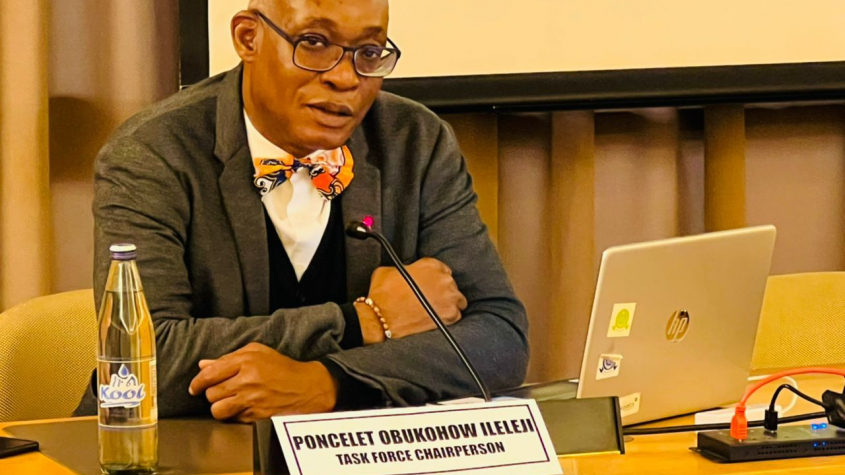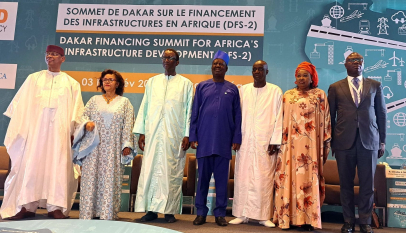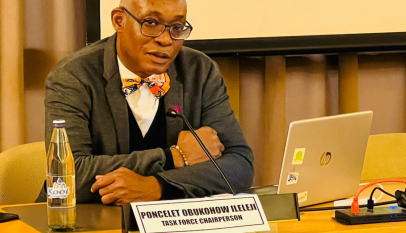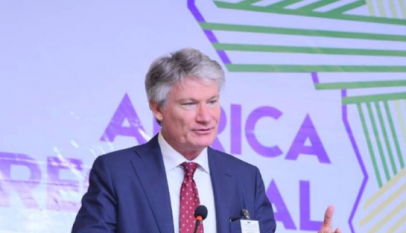INTERVIEW | Why African governments should prioritize investment in digital infrastructure – Poncelet Ileleji
Poncelet Ileleji chairs the Economic for Africa (ECA) Africa taskforce on the 17th Global Internet Governance Forum (IGF), scheduled for Addis Ababa, Ethiopia, from November 28 to December 02, 2022.
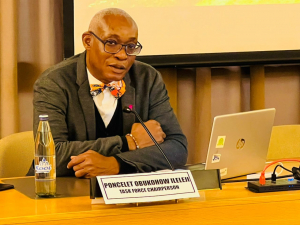
Newspage: The theme for the 17th Global IGF is: Resilient Internet for a ‘Shared Sustainable and Common Future.’ What is the significance of the 17th IGF, against the backdrop of previous Forums?
Ileleji: We had the first-ever United Nations Internet Governance Forum (IGF), themed: ‘Internet Governance for Development’, in November 2006, in Athens, Greece. Subsequently, Africa hosted two IGFs, i.e the 4th IGF held at Sharm El Sheikh, Egypt in 2009 and the 6th IGF held at Nairobi, Kenya in 2011. The last and 16th IGF was the first hybrid IGF held in the aftermath of the Covid-19 pandemic at Katowice, Poland.
The 17th IGF will be taking place in Addis Ababa, Ethiopia, from November 28 to December 2. It is very significant because the theme revolves around how to build a resilient internet owing to the fact that we can no longer afford a fragmented internet. We need an internet that is borderless because the internet is a catalyst for change, innovation and collective development; irrespective of whether one lives in the Global North or Global South.
From an African perspective, I am gladdened that the 17th IGF is being hosted in Addis Ababa, which is the home of the African Union; this makes it even more strategic as a host for the 17th IGF.
Newspage: What does Africa’s hosting of the 2022 IGF mean for the continent, in terms of improving its digital infrastructure, bridging connectivity gaps as well as addressing the gender digital divide?
Ileleji: Our constraints should be our strength in terms of what it means to improve digital infrastructure, bridge digital connectivity gaps as well as address the digital gender divide. I would say our digital infrastructure isn’t very bad across the 55 African countries. For instance, there is mobile phone connectivity almost everywhere around the continent. However, we now need to make internet connectivity affordable as access to the internet is still very expensive in most parts of Africa.
Ghana has the lowest mobile data cost per gigabyte in Africa, South of the Sahara i.e $0.61 per gigabyte, while in The Gambia, 1 gigabyte of data goes for as high as $5. The North Africa region has the lowest average, which is $1.5 per gigabyte, just as the overall average for Sub-Saharan Africa is $4.47 per gigabyte, even as millions of Africans still live under a dollar a day.
I believe the challenge before us as a continent is to put in place policy and regulatory frameworks that will guarantee universal access to an affordable internet for all Africans. If Ghana can do it, others can equally do the same. This is why we have the Alliance for Affordable Internet (A4AI), a global coalition working to drive down the cost of internet access in low- and middle-income countries in Africa and Asia, through policy and regulatory reforms.
Thus, we have to get more Africans not only attending the IGF but also to host workshops and side events to discuss issues relating to the African context, in terms of what is happening in say Western Sahara, Morocco or Nigeria. In my opinion, our challenge has to do with access to an affordable internet, internet shutdowns as well as unnecessary regulations hindering our realization of an open internet. We don’t want what is prevalent in countries like Cameroon and Uganda to continue to happen in Africa.
Newspage: The 11th African Internet Governance Forum (AfIGF 2022) under the theme Digital Inclusion and Trust in Africa was held in Lilongwe, Malawi last July. Is there any kind of synergy between AfIGF and IGF?
Ileleji: Yes, there is always a link. It is always a bottom-up approach, beginning with the National and Regional IGF initiatives (NRIs) in all parts of the world. For instance, what is discussed at the country level IGF in, say, The Gambia, feeds into the regional IGF in West Africa, which also feeds into the continental AfIGF. The outcome of the continental IGF feeds into the global IGF, which is the highest platform for discussing issues like internet access, infrastructure, and online safety for children, among others.
Although the NRIs are not decision-making entities, the outcomes of their discussions offer the best inputs to discussions at the Global IGF and drive national internet agendas of countries of the world. For example, in The Gambia, cyber security and data protection have been major points of discussion during our national internet governance forums in the past two years. Consequently, the country now has a cyber security bill while a data protection and privacy bill is also underway.
This was only achieved because these issues were discussed by major internet stakeholders at the national IGF. So, this is how national IGFs help drive the global internet governance agenda from bottom to top. Therefore, the outcome of the 11th AfIGF will feed into the 17th global IGF just as some of its sessions will also be replicated in the 2022 Global IGF.
Newspage: Pundits often argue that for Africa to take advantage of the internet economy value chain, the continent must prioritize digital infrastructure. How can Africa build an effective digital infrastructure and guarantee access to internet services for all?
Ileleji: Yes, there is always a link. It is always a bottom-up approach, beginning with the National and Regional IGF initiatives (NRIs) in all parts of the world. For instance, what is discussed at the country level IGF in, say, The Gambia, feeds into the regional IGF in West Africa, which also feeds into the continental AfIGF. The outcome of the continental IGF feeds into the global IGF, which is the highest platform for discussing issues like internet access, infrastructure, and online safety for children, among others.
Although the NRIs are not decision-making entities, the outcomes of their discussions offer the best inputs to discussions at the global IGF and drive national internet agendas of countries of the world. For example, in The Gambia, cyber security and data protection have been major points of discussion during our national internet governance forums in the past two years. Consequently, the country now has a cyber security bill while a data protection and privacy bill is also underway.
This was only achieved because these issues were discussed by major internet stakeholders at the national IGF. So, this is how national IGFs help drive the global internet governance agenda from bottom to top. Therefore, the outcome of the 11th AfIGF will feed into the 17th global IGF just as some of its sessions will also be replicated in the 2022 global IGF.
African leaders are very good at making policies, but the challenge is in the implementation of those policies. We need to prioritize Agenda 2063’s flagship programmes and initiatives, particularly the Digital Transformation Strategy for Africa (2020-2030), which seeks to build on existing initiatives such as the Policy and Regulatory Initiative for Digital Africa (PRIDA), the Programme for Infrastructure Development in Africa (PIDA) and support the development of a Pan-African Digital Single Market (DSM).
Since the emergence of the Covid-19 pandemic, ECA has promoted digitalization among African leaders and urged them to always think digital. Consequently, the ministries of communication of various African countries like Nigeria, The Gambia and Senegal have been retitled as the ‘ministry of communication and digital economy’. This means the continent understands the internet’s role as a key enabler of attaining the goals of Agenda 2063.The challenge before us is ensuring decisions and policies made at the international and regional levels are implemented nationally.
Equally important is the need to guarantee the support of governments for investment in digital infrastructure by creating the enabling environment and regulatory frameworks for investors such as telcos to make the required investment. This is also not just about legal and regulatory frameworks but also ensuring there is peace and security, which are the major prerequisites for investment in digital infrastructure.
Editor’s note: This interview has been edited for length and clarity

